What are the deadliest snakes in the world? Which snakes are known for their aggression? When talking about the most dangerous snakes, many people will first think of their venom, but are the most venomous snakes necessarily the most dangerous? Not necessarily. Although some venomous snakes are highly venomous, they are mild-tempered; while some less venomous snakes cause more harm to humans due to their widespread distribution and strong aggressiveness.
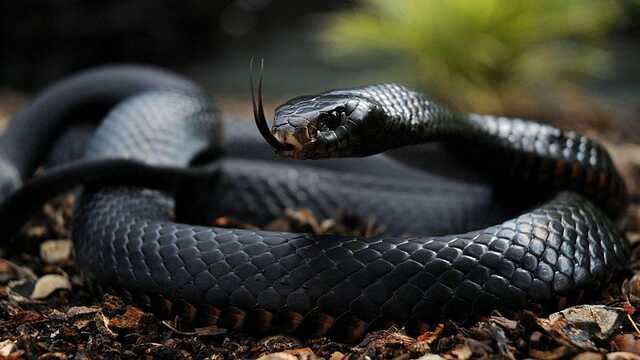
Therefore, this article will list the ten most dangerous snakes in the world and explore which snakes are the most aggressive and cause the most serious injuries.
1. Black Mamba Snake
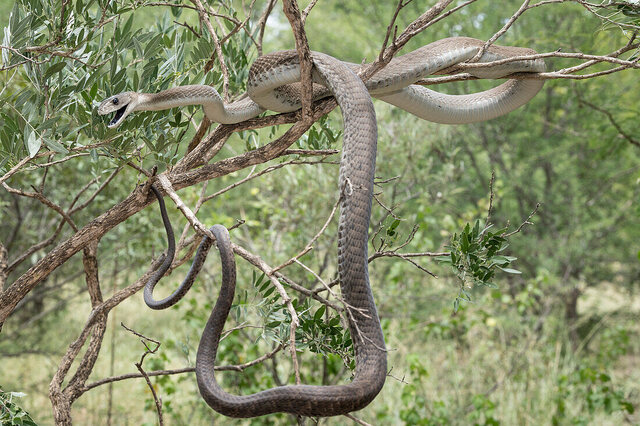
The black mamba, also known as the "black tree cobra", is the second most venomous snake in the world. It has an astonishing attack speed, up to 19 kilometers per hour. This snake is the largest of the mamba species and is known as the "African God of Death". The black mamba snake has a slender body, usually more than 2 meters in length, and can reach 4.5 meters in length.
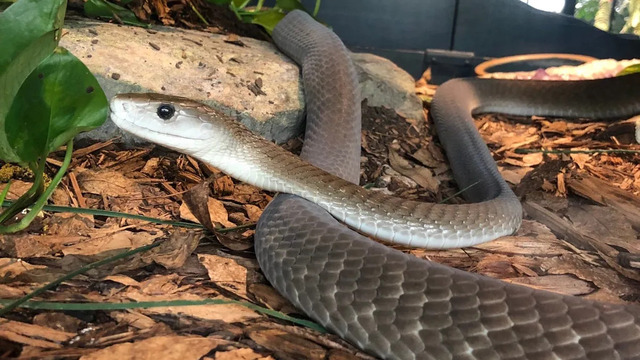
Its head is rectangular and its body color is gray-brown, gradually becoming lighter from back to abdomen. Similar to other mamba snakes, the black mamba not only lives in trees, but also forages on the ground. It mainly preys on small mammals, such as mice, but also lizards and small birds.
2. Round-spotted Viper
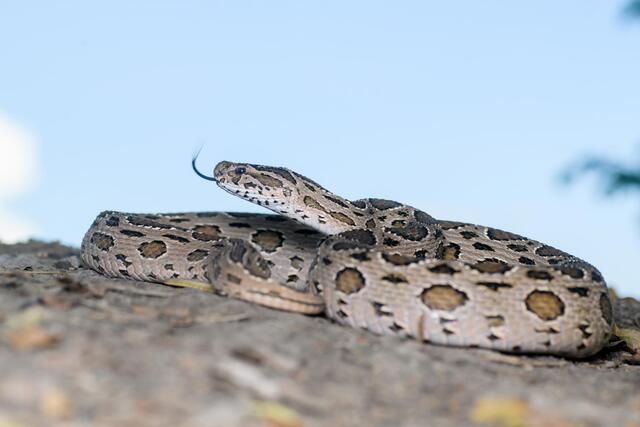
The round-spotted viper is mainly distributed in Thailand, and its aliases include the hundred-step golden leopard and the Lu's viper. This is a venomous viper belonging to the family Viperidae and the genus Viper in the suborder Snakes. The round-spotted viper has a stout body, usually about 1 meter in length, with a larger, triangular-shaped head, narrow at the front and wide at the back.
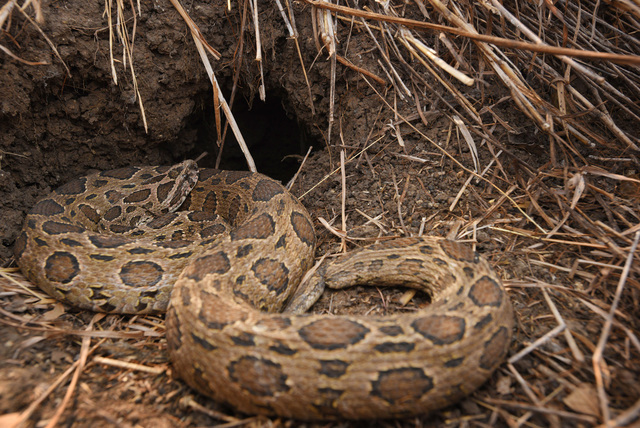
After being bitten by this snake, victims may face serious consequences such as coagulopathy, limb swelling, and renal failure. Symptoms include hematuria, hemolysis, and oral and systemic bleeding, which may even lead to pulmonary hemorrhage and cerebral hemorrhage, with a fatality rate relatively high.
3. King Cobra
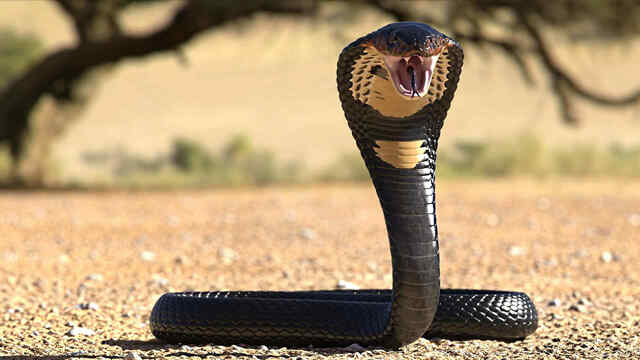
The king cobra is also known as the mountain snake, the peak cobra or the giant cobra. Although it has "cobra" in its name, it is distinct from a true cobra and belongs to its own genus King Cobra. Compared with other cobras, the King Cobra has a more ferocious personality, extremely fast reactions, strong venom, and a large amount of venom, which can be fatal within a few minutes after being poisoned.
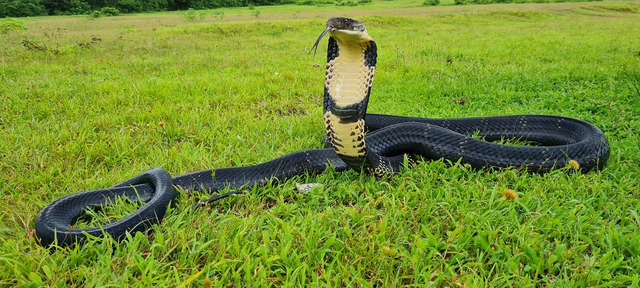
Therefore, it is considered one of the most dangerous snakes in the world. King cobras are common in southwest and southern China and like to inhabit grasslands, open slopes and woods. Its main prey is other snakes of the same species, so other types of snakes are rarely seen in its territory.
4. Saw-scaled Viper
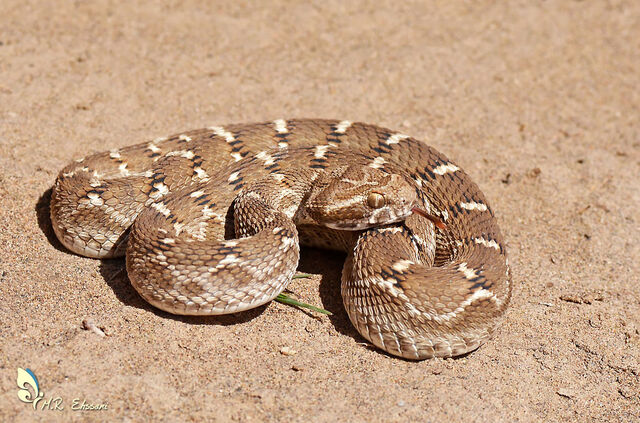
The saw-scaled viper is a venomous snake in the family Viperidae, with the scientific name Echis carinatus. It is mainly distributed in deserts and arid areas from North Africa to Sri Lanka. Considered a highly venomous snake in the family Viperidae, its bite is often fatal. The body length of adults generally does not exceed 60 centimeters (about 2 feet).
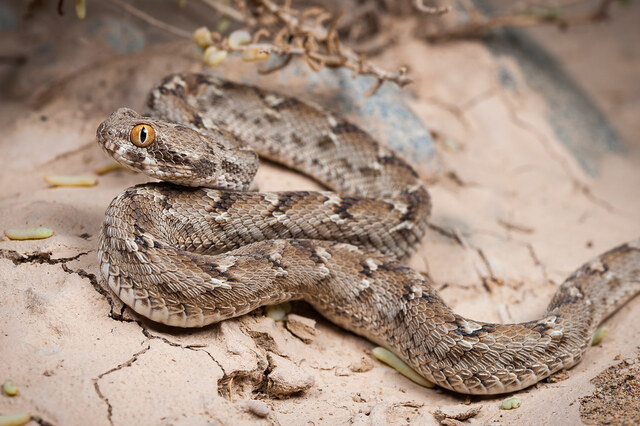
This snake is irritable and aggressive and usually hides under rocks or in rodent hideouts. Its body color is usually sandy or gray, with white spots on its back and faint zigzag stripes on its sides. Its scales are rough, and when threatened, the scales rub against each other and make a hissing sound.
5. Golden Cobra
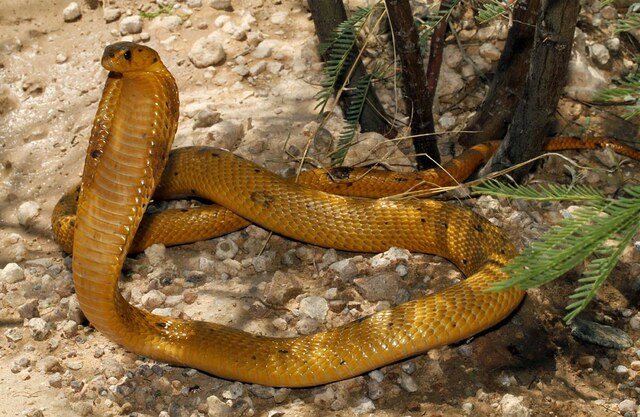
The golden cobra (scientific name: Naja nivea) belongs to the family Naja and the genus Naja. It is usually between 1.2 and 1.4 meters long and has gorgeous golden skin with black spots. It has an oval-shaped head and is one of the most common venomous snakes responsible for snake bites in Africa.
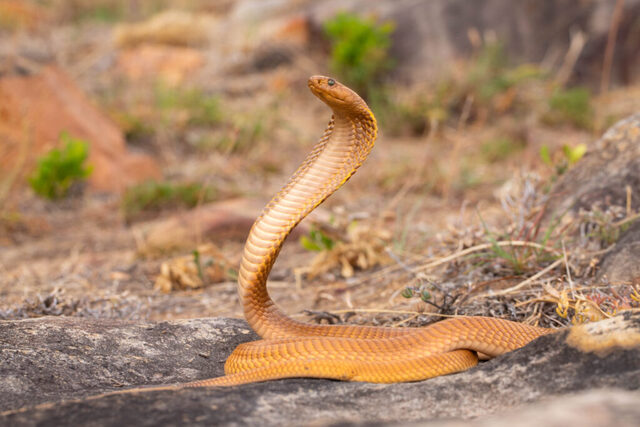
Golden cobras are mainly found in southern Africa such as South Africa, Namibia, Botswana and Lesotho. They are active during the day and evening and prey mainly on small mammals, but also frogs and lizards. According to Nigel Marvin's list of the top ten deadliest snakes in South Africa, the golden cobra is the second most venomous, after the black mamba.
6. Tiger Snake
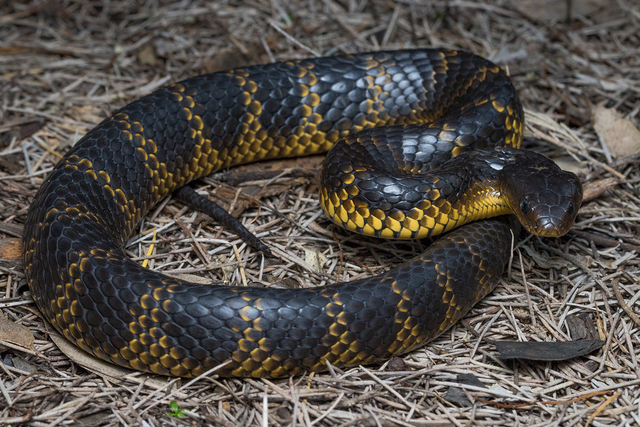
Tiger snake (scientific name: Notechis scutatus) belongs to the family Cobra and is mainly distributed in Australia. Its venom contains coagulants and nerve paralytics, often causing death. Before attacking, tiger snakes inflate their heads and necks into a flat shape, a characteristic similar to that of cobras. Tiger snakes are a common species found in the swamps of southern Australia and come in a variety of colors, with brown and yellow stripes commonly seen.
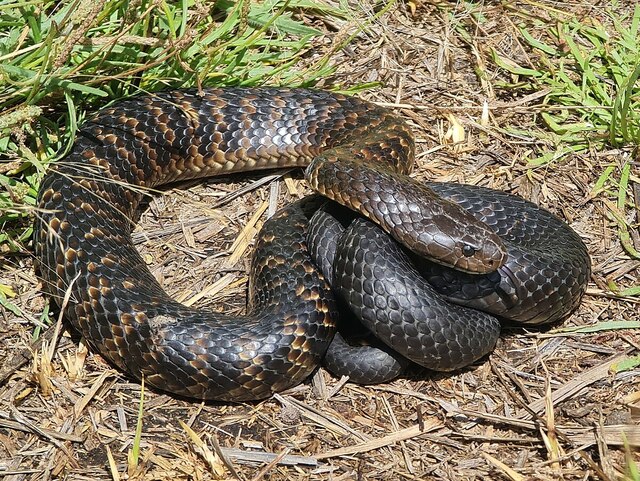
Its average length is about 1.2 meters (4 feet), generally between 1.3 and 1.6 meters. It has a stout body and a large head. It is usually light dark orange or brown in color, accompanied by yellow-green, gray or orange-brown. Ringed, inhabiting semi-arid areas of Australia and Tasmania. Tiger snakes are highly aggressive and highly venomous and are one of the leading snake species responsible for human deaths.
7. Bungarus snake
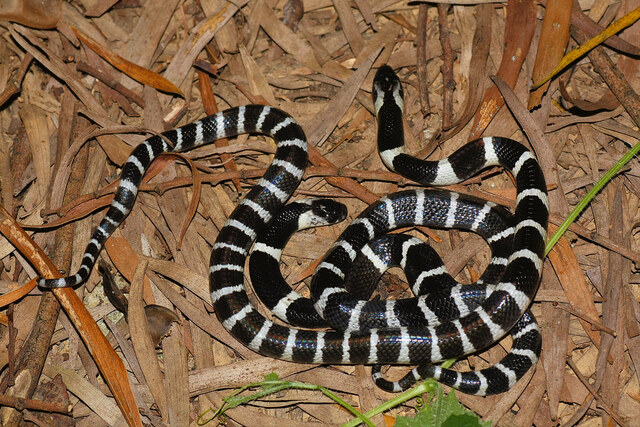
The bungara snake is a reptile belonging to the genus Krait of the family Ebraidae. It is often called a golden snake, a silver-banded snake, or a silver-clad iron snake. It is extremely venomous and is considered the fourth largest land snake. The body of the bungara snake has white and black rings. The white rings are relatively narrow, the tail is slender, and the body length is generally between 1 and 1.8 meters.
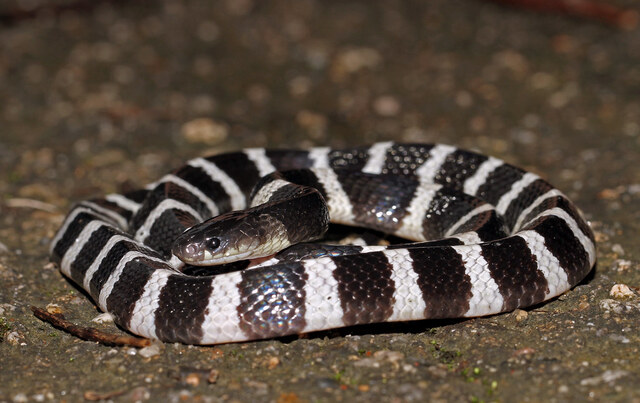
Bungarus snakes have a relatively gentle personality and rarely actively attack humans, but they may bite suddenly when laying eggs or when disturbed. It mainly feeds on loaches, eels and frogs, but also eats various fish, rats, lizards and other snakes.
8. Green Mamba
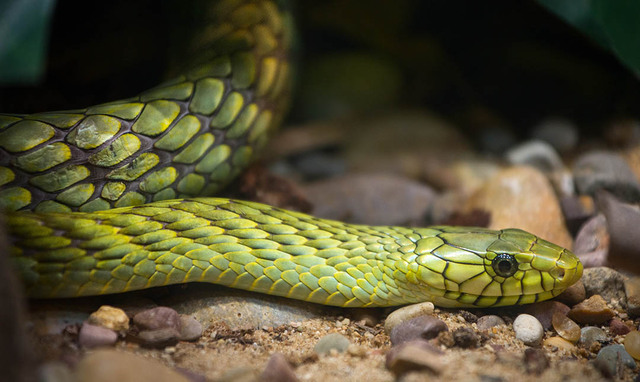
The Green Mamba is a species of snake originating from Africa, belonging to the family Elapidae and the genus Mamba. It is considered one of the fastest snakes living today, reaching speeds of over 11 kilometers per hour. Green mamba snakes are bright green all over, with very slender bodies and heads, usually about 2 meters in length.
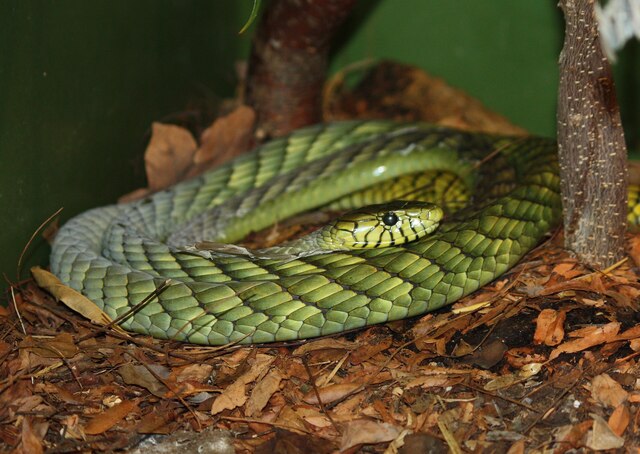
They mainly live in forests in eastern and southern Africa. Their green appearance resembles that of noble bamboo, and this camouflage gives them great concealment, helping to avoid predators and improve hunting efficiency.
9. Red tail bamboo with green leaves
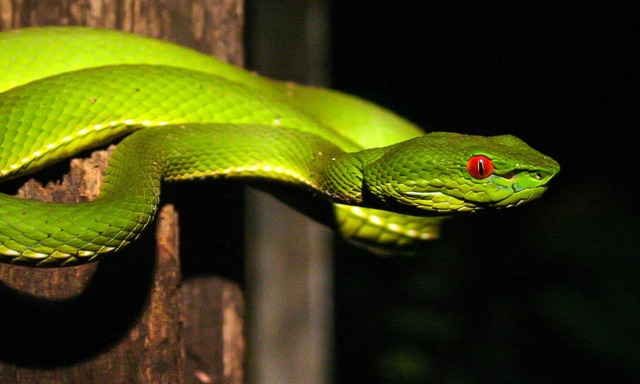
The red-tailed bamboo leaf, also known as the white-lipped bamboo leaf green, bamboo leaf green or green bamboo snake, is a venomous snake. The head of the White-lipped Bamboo Leaf Green is triangular, with a thin neck that looks like a soldering iron; its back is bright green with an inconspicuous black horizontal band, and its abdomen is yellow-white. There is a conspicuous white stripe on one side from the neck to the tail.
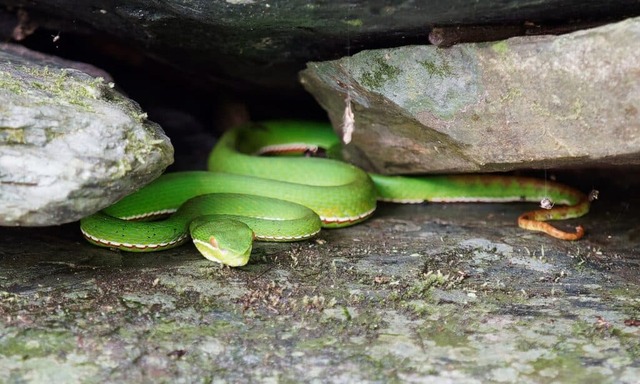
The poison of this snake is blood circulation poison. After the bite, the patient will feel severe pain and mild systemic symptoms. Although the chance of death from a Bamboo Leaf Green bite is low, many people are still bitten every year, causing great pain.
10. Rattlesnake
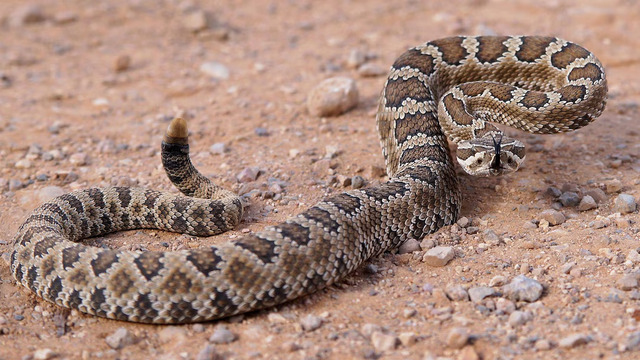
The rattlesnake belongs to the family Viperidae (Rattlesnake family) in the reptile kingdom. It is a venomous snake with tube teeth. Its venom is mainly blood-circulating venom. Generally, its body length is between 1.5 and 2 meters. The body is yellow-green with diamond-shaped dark brown markings on the back.
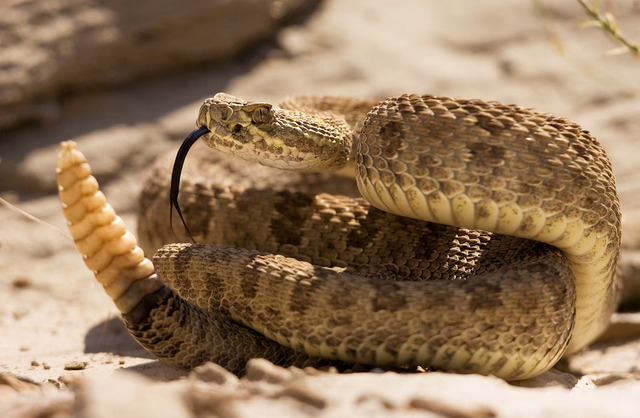
There is a string of horny rings at the end of the tail, which are the remnants of multiple molts. When faced with a threat or moving quickly, a rattlesnake will rapidly swing the ring on its tail, which can swing 40 to 60 times per second, making a loud sound that deters enemies from approaching or running away directly, hence the name rattlesnake.
animal tags: snakes
We created this article in conjunction with AI technology, then made sure it was fact-checked and edited by a Animals Top editor.